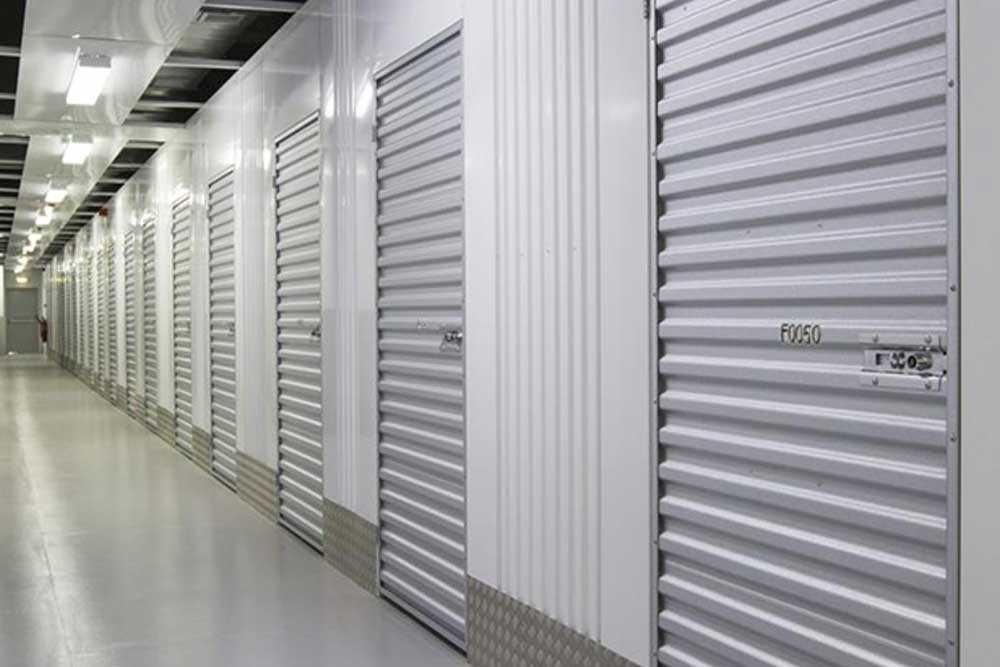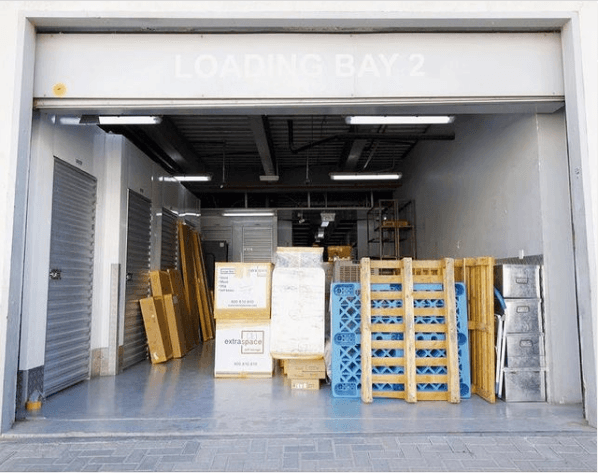Jun 6, 2025
If you have too many things in your home and there’s no more space, it may be time for you to consider renting a storage unit. But you may be new to renting a storage unit and are not really familiar with how things work. Here’s all you need to know about renting a storage unit:
What Is Self-Storage and How Does It Work?
Self-storage involves renting a storage room to keep your personal belongings. You sign a contract with a storage company and book a room, have your items brought down, and store them in a storage unit. At Extra Space, the minimum lease time is one month, with no maximum.
Reasons to Rent a Storage Unit
Storage units offer flexible solutions for a variety of needs, whether you're looking to declutter your home, support a growing business, or manage a life transition. Here’s a breakdown of the most common reasons why people turn to self-storage:
For Personal Use
Decluttering Your Home
Over time, it’s easy for your living space to become overwhelmed with items, especially if you’re not ready to part with them. A storage unit allows you to create more room at home without getting rid of meaningful possessions. Whether it's extra furniture, seasonal decor, or archived items, self-storage helps keep your space organised while preserving the things that matter.
Seasonal Item Storage
From Christmas decorations and Halloween costumes to camping gear and beach umbrellas, certain items are only needed during specific seasons. Instead of letting them take up valuable space all year round, a storage unit provides a convenient off-season home for these belongings. You can rotate items in and out as the seasons change, keeping your living space functional and tidy.
Home Renovations
Renovating your home can be exciting, but also chaotic. Dust, construction debris, and limited space can put your furniture and electronics at risk. Placing your belongings in storage during the renovation period protects them from damage and gives contractors the room they need to work efficiently.
For Business Use
Storing Inventory, Tools, or Documents
Small businesses, startups, and entrepreneurs often outgrow their office space but aren’t ready to upgrade to a warehouse. A storage unit offers an affordable and scalable way to store office equipment, product inventory, tools, or important records, all in a secure environment.
Flexible Solutions for Freelancers & SMEs
Freelancers like photographers, event planners, and artists often have specialised equipment or props that need proper storage when not in use. With 24/7 access and climate-controlled options, storage units offer a flexible and reliable extension of your workspace, helping you stay organised and focused on your craft.
During Life Transitions
Moving Houses
Whether you're relocating within the UAE or waiting for your new home to be ready, storage units can bridge the gap between move-out and move-in dates. You can safely store your belongings while staying in temporary housing, avoiding clutter and reducing stress during the moving process.
Temporary Relocation or Downsizing
Expats and professionals may need to temporarily move abroad or into smaller accommodations. A storage unit allows you to keep your non-essential items safe without having to sell or ship everything immediately. It’s also ideal for those in transition, such as retirees downsizing their homes or students moving back from university.
Car and Vehicle Storage
Classic Cars, Motorcycles, Boats & More
Storage units are also a smart solution for vehicle storage. Whether you own a classic car, motorcycle, or even a small boat, you may not have space to keep it at home, especially in urban areas. A secure, climate-protected facility allows you to store vehicles you don’t use every day, helping preserve their condition and value over time.

Things to Consider Before Renting a Storage Unit
When choosing a storage unit, there are many things to consider, such as:
Location and Accessibility
Consider the location of the storage facility. A facility that is too far away from your home may be inconvenient if you need to access the unit for your items frequently. It’s best to choose a storage facility that is near your area.
Additionally, you also need to consider accessibility. Does the facility offer 24-hour access, or does it have limited hours? At Extra Space, you can enter your unit whenever you need to. We offer 24-hour access, seven days a week.
Security and Safety
Another thing you have to prioritize is security. Does the facility have video surveillance and gated access? Are there security guards? Is the lighting good?
At Extra Space, your belongings are very secure, as there are trained security guards on site 24/7, video surveillance, and separate alarm systems on your storage unit. Additionally, access to your unit is by your own individual code.
The Type of Unit and Size
There are some items that require climate-controlled storage. If you have wooden and leather furniture, artwork, musical instruments, or tech gadgets, it is advisable to choose a climate-controlled storage unit. They may be more expensive, but your items will be kept in good condition.
Additionally, if you will be storing numerous bulky items, you may need to rent a spacious unit. If you only have a few items to store, or if all your items are small, then you can rent a smaller storage unit.
Cleanliness and Pest Control
Evaluate the storage facility. Make sure that it is clean and well-maintained. Ask about pest control measures, as pests can damage your items if they get into your unit.
Prices and the Contract
Consider the price of the storage unit you will be renting. Ask about the different rates and if there are any additional charges. Read the contract or rental agreement carefully and pay attention to the terms and conditions.

How to Choose the Right Storage Unit Size
Picking the right storage unit size doesn’t have to be complicated, but it’s something worth thinking through. If you choose a unit that’s too small, you’ll run out of space quickly. If it’s too large, you could end up paying for a room you don’t need.
Here’s how to figure out what size might work best for your situation:
1. Start by Listing What You Plan to Store
Before you book a unit, take stock of what you’ll be putting in it. Make a list of items, especially large ones like beds, sofas, appliances, desks, or storage boxes. Don’t forget smaller items add up and still take space.
If it helps, group things by room or by type (e.g. bedroom furniture, business files, seasonal items). This gives you a clear idea of how much space you’ll need.
2. Think About How Often You’ll Need Access
If you plan to store everything and leave it for a while, you can pack the unit tightly and use every bit of space. But if you’ll be coming in and out often, especially to grab certain items, it’s better to leave walking space and stack items neatly.
For example, businesses storing stock or files often need a bit of space to move around or create labelled sections. This might mean going up one size from what you’d need if the unit was packed full.
3. Understand Common Unit Sizes and What Fits
Here’s a rough guide to help you match unit size to the amount of stuff you have:
Small unit (1–2 square metres)
Fits a few boxes, small items, or seasonal decorations. Good for clearing out a cupboard or wardrobe.Medium unit (3–6 square metres)
Suitable for the contents of a studio or 1-bedroom flat. Think of a few pieces of furniture, appliances, and around 10–15 boxes.Large unit (7–12 square metres)
Can hold furniture and items from a 2–3 bedroom home. Useful if you’re moving house or doing major renovations.Extra large unit (13+ square metres)
Enough space for full household contents or business storage needs. Also suitable for storing larger items like equipment or small vehicles.
Remember that sizes can vary slightly between providers, so it’s always good to check the actual dimensions or ask for help if you’re unsure.
4. Stack and Store Smartly
You can make better use of the space by stacking boxes and placing bulky items vertically when possible. Using shelves or labelled containers also helps with organisation, especially in medium or large units.
If you’re storing awkward-shaped items or fragile things, allow for extra space to avoid stacking too much or damaging anything.
5. Ask the Storage Provider for Guidance
Our staff at Extra Space staff can guide you through the selection. We've usually seen all kinds of storage needs and can recommend a size based on your list of items.
We also offer size calculators or allow you to view a sample unit before you decide.
What You Can and Cannot Store
Before placing items in storage, it's important to understand what you’re allowed to store and what’s not permitted. While many everyday belongings are perfectly fine to keep in a storage unit, there are some things that, for safety or legal reasons, cannot be stored.
Commonly Stored Items
Most people use storage units for household, personal, or business-related belongings. Here are some of the most common items that can be stored safely:
Furniture – sofas, beds, dining tables, chairs, and wardrobes
Electronics – televisions, computers, gaming consoles, and small appliances
Clothing – seasonal clothes, footwear, or items that don’t fit in your current wardrobe
Documents and files – personal records, books, archived business paperwork
Home appliances – fridges, microwaves, washing machines (if cleaned and defrosted)
Luggage and boxes – packed items ready for moving or long-term storage
Sports equipment – bicycles, golf clubs, gym gear
Decorations – Christmas lights, Halloween props, party items
If you’re storing electronics or items sensitive to temperature or humidity, a climate-controlled unit might be recommended.
Prohibited Items
Storage units are designed to keep your items safe, but certain things are not allowed due to health, safety, or legal concerns. Here’s what you should avoid placing in your unit:
Hazardous or flammable materials
Petrol, paint, gas canisters, fireworks, explosives, chemicals, and cleaning solvents are all considered dangerous. These pose fire risks and are strictly not permitted.Perishable goods
Food, drink, or any items that can spoil or attract pests should not be stored. Even tinned food is generally not advised, unless the unit is climate-controlled and specifically approved.Living things
Animals, plants, or any living creature must not be kept in a storage unit under any circumstance.Illegal or stolen goods
Anything unlawful to possess or sell in the UAE cannot be stored. This includes counterfeit items, weapons, and unlicensed products.Cash and valuables
It’s also not advisable to store large amounts of cash, jewellery, or other high-value personal items. These are best kept in a secure, insured location like a safety deposit box.
If you're ever unsure whether something can be stored, it’s always best to check directly with the storage provider before moving in.
Frequently Asked Questions
How much does a storage unit cost per month?
The monthly cost depends on the size of the unit, the type (standard or climate-controlled), and the location of the facility. Prices typically start from a small monthly fee for compact units, with larger units costing more. It's best to request a quote based on your specific needs.
Can I access my unit at any time?
Yes. At Extra Space, you can access your storage unit 24 hours a day, seven days a week. There are no restricted hours.
How do I choose the right unit size?
Start by listing what you plan to store. Then consider how much space those items will take up and how often you’ll need to access them. If you're unsure, staff at the facility can help you choose the right size, or you can use a size guide or calculator.
Is insurance required for my items?
Basic liability coverage is included in your rental. However, for better protection, it’s highly recommended to purchase additional valuation coverage. This offers more comprehensive protection for your belongings in case of damage or loss.


